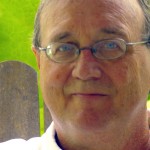James Hatley
 I am Professor of Philosophy at Salisbury University, USA. My emerging work on species extinction has its roots in Holocaust and Genocide Studies. In 2000 I published Suffering Witness, which provides a philosophical account of the responsibility to witness the Shoah and other events of irreparable historical violence. It is argued there that to witness that which cannot be redeemed, at least historically, puts thought in quandary, in an impasse that cannot be resolved but still must be acknowledged. I became aware then that to think meaningfully about the violence suffered by the victims of historical injustice, one is required to think otherwise than historically, to think in modes of transcendence that have been ignored or even repudiated by modern and postmodern culture. As a result I have increasingly turned to the Hebraic notion of creation in all of its subtlety and complexity as it is developed by the prophetic and rabbinical traditions in order to find renewed senses of devastation, hope and responsibility in a time of extinction. In such a time, I argue, we are called upon to nurture a virtue of temporal discernment, to exercise care for how different modes of temporality—personal, familial, social, cultural, historical, biogenic and geogenic—disrupt one another, even as each calls respectively for our allegiance. In this wise, understanding how the current era of species extinction is linked to a history of colonization and human genocide is crucial. The wisdom and experiences of indigenous peoples, long devalued or misappropriated by Western culture, must be heard anew if humanity is to respond conscientiously to the widespread destruction of habitat currently been wreaked upon the face of the earth.
I am Professor of Philosophy at Salisbury University, USA. My emerging work on species extinction has its roots in Holocaust and Genocide Studies. In 2000 I published Suffering Witness, which provides a philosophical account of the responsibility to witness the Shoah and other events of irreparable historical violence. It is argued there that to witness that which cannot be redeemed, at least historically, puts thought in quandary, in an impasse that cannot be resolved but still must be acknowledged. I became aware then that to think meaningfully about the violence suffered by the victims of historical injustice, one is required to think otherwise than historically, to think in modes of transcendence that have been ignored or even repudiated by modern and postmodern culture. As a result I have increasingly turned to the Hebraic notion of creation in all of its subtlety and complexity as it is developed by the prophetic and rabbinical traditions in order to find renewed senses of devastation, hope and responsibility in a time of extinction. In such a time, I argue, we are called upon to nurture a virtue of temporal discernment, to exercise care for how different modes of temporality—personal, familial, social, cultural, historical, biogenic and geogenic—disrupt one another, even as each calls respectively for our allegiance. In this wise, understanding how the current era of species extinction is linked to a history of colonization and human genocide is crucial. The wisdom and experiences of indigenous peoples, long devalued or misappropriated by Western culture, must be heard anew if humanity is to respond conscientiously to the widespread destruction of habitat currently been wreaked upon the face of the earth.
Relevant Publications:
“The Uncanny Goodness of being Edible to Bears,” in Nature Reconsidered: New Essays in Environmental Philosophy, Bruce Folz and Robert Froedeman, eds. (Indianapolis: Indiana University Press, 2004).
“Home-Killing Airs and Countervailing Winds.” In Alphabet City: Air (Toronto: MIT Press (Fall, 2010)).
“Blood Intimacies and Biodicy: Keeping Faith with Ticks,” in Australia Humanities Review, Issue 50. (May, 2011).
“The Anarchical Goodness of Creation: Monotheism in Another’s Voice.” In Facing Nature: Levinasian Ethics and Environmental Philosophy. Christian Diehm, William Edelglass, James Hatley, editors (Pittsburgh: Duquesne University Press, forthcoming).
““Earth without End: False Eternities and the Happily Mortal Future of the Human Species,” in Temporal Environments: Rethinking Time and Ecology. Special Issue of Journal of Environmental Philosophy. Jacob Metcalf and Thom van Dooren, eds. (forthcoming: Spring, 2012).
Recent Presentations:
“Blaspheming Humans: Levinasian Politics and The Cove.” Annual meeting of the International Association of Environmental Philosophy. Montreal, Canada. November 7 , 2010.
“Naming Adam Naming Coyote.” Joint Workgroup on “Jews, Native Americans and the Western World Order.” Columbia University. April 25, 2010. Sponsored by Institute for Israel and Jewish Studies (IIJS) and Institute for Religion, Culture and Public Life (IRCPL).
“Naming Adam, Naming Creation: A Midrashic Approach to Environmental Philosophy.” Berman Lecture Series of the Eckerd College Spirituality Center. Eckerd College. November 24, 2008.
Conference Director:
“Geo-Aesthetics in the Anthropocene.” 2nd Biennial Summer Conference sponsored by the International Association for Environmental Philosophy. May 24-26, 2010. Salisbury University.